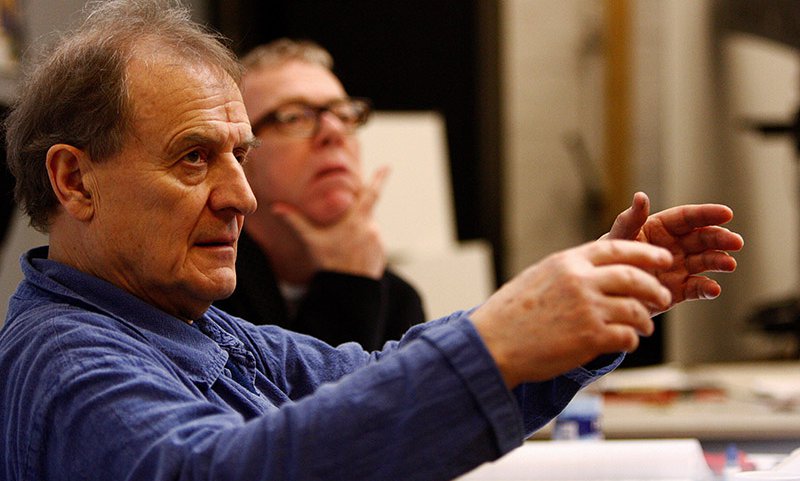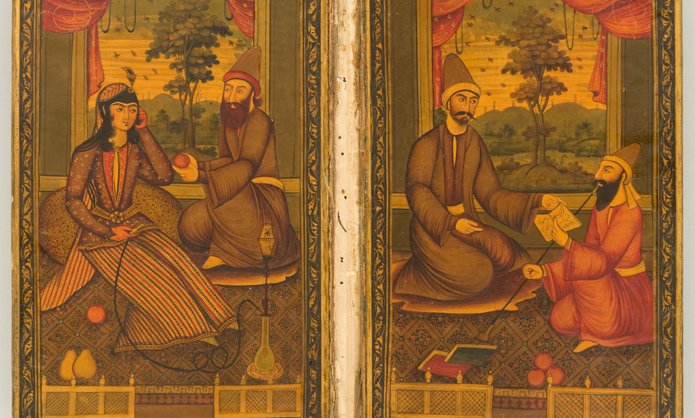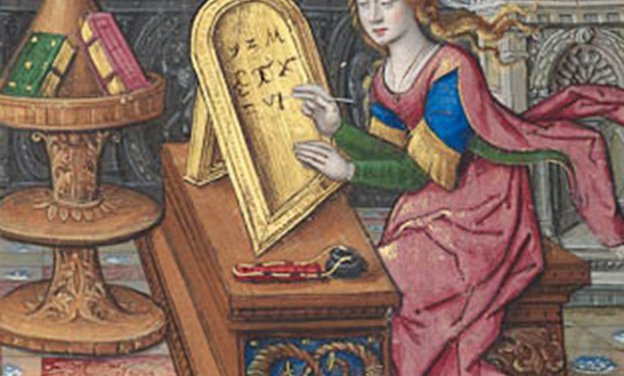The representation of history on film and television
by Dr Helen Laville
10 May 2016
I am currently packing up the office I have occupied for eighteen years in preparation for a move to a new job. Alongside the accumulated paperwork of my life as a lecturer, I discover all my undergraduate notes and having the attention span of a gnat on a sugar rush I am easily distracted and find myself reviewing my undergraduate essays in all their dot matrix glory. I am particularly pleased to see my notes and draft essay from my second year option ‘History as presented on Film and Television.’ In 1990 this was a ground breaking course, dogged by the kind of technical challenges which are laughable today. Students often didn’t have televisions and video-players of their own, so viewing hours had to be scheduled on campus, and opportunities for repeat viewing were limited. In contrast to our current 15-day turnaround for feedback on assessed work, I handed my essay in for this option at the end of my second year, and didn’t find out what mark I had received until results day at the end of my final year.
While the teaching, learning and viewing practices which structured that course 26 years ago are radically different to those we are familiar with today, I was struck by how fresh many of the issues around the representation of history on film and television remained. As I prepare for the British Academy Conference ‘Civil Rights Documentary Cinema and the 1960s: Transatlantic Conversations on History, Race and Rights’ (Tuesday 24, Wednesday 25 & Thursday 26 May 2016) I am finding that some of the same questions structure our conference schedule as structured my undergraduate essay.
While computer animation and green screen might have resolved some of the technical challenges that still existed in 1990, the intellectual debates that inform documentary film remain much the same. The role and responsibilities of the ‘professional’ historian and the filmmaker remain contentious. For many professional historians and academics, their medium remains overwhelming the written word. Truth, accuracy, accountability, and attribution are all carefully verified in end notes. The film maker might legitimately claim to approach the concept of ‘truth’ and ‘accuracy’ in a different way, aiming for what they might call the ‘bigger truths’.
Obsession with detail and factual accuracy can come across as nit-picking, an obsession with inconsequential errors, a prioritising of expert knowledge over the artistic endeavour. Such carping can be frustrating. I recall my own exasperation when my mother, a long-time resident of Leeds, dismissed an excellent docudrama we were watching about the Yorkshire Ripper murders, because she insisted that in driving from point A to point B, the police detective would never really have driven that route. Profound truths about police complacency, misogyny and ineptitude were nothing compared with the heinous error of showing someone driving down the Roundhay Road at that time of night. Her privileging of geographical accuracy over artistic and emotional impact was, I felt, missing the larger point. It was also something of an exercise in one-upmanship, in claiming a more expert and insider knowledge than the film makers. Dismissing films on the basis for small errors in detail is frequently a form of smug preening. I forget which historian it was who pointed out the irritation he feels when people criticise actors in Hollywood Roman epics for speaking with American accents. If they’re not delivering the lines in Latin, he pointed out, what possible difference does it make what their accents are?
Documentary film maker Jill Godmilow has written of the difficulties in making documentary fill, explaining, “To survive, to take public space and attention, it has had to borrow all kinds of structural and strategic devices from fiction in order to achieve what I would call “satisfying form”, that is, to send the audience out of the theater (and/or off to bed) feeling complete, whole, and untroubled. One of those borrowed devices is narrative – which entails sentiment and closure. General audiences seek and expect closure, even from documentary films.” Godmilow’s point is one I hope to see interrogated throughout our conference. How do documentary film makers balance the demands for historical accuracy, and the kind of messy, unresolved, problematic truths of real life with the narrative imperatives of closure, pace, heroes and villains, simple motivations, and concrete cause and effect?
Through a series of panel discussions, Question and Answer sessions and screenings, the conference brings notable historians and filmmakers such as Clayborne Carson, Allison Graham, Judy Richardson, Reece Auguiste, David Shulman, and Eduardo Montes-Bradley. Films screened will include selections from the ground-breaking 14-hour documentary series Eyes on the Prize I (1987) and full screenings ofAt the River I Stand (1993) Scarred Justice: The Orangeburg Massacre, 1968 (2008), Rebels: James Meredith and the Integration of Ole Miss (2012) The March (2013) and Ballots and Bullets in Mississippi(aka Dirt and Deeds in Mississippi, 2015). The conference offers an unprecedented opportunity to discuss these films with their directors and advisors, and to think about the differences and similarities of history in its written and filmed forms. Beyond this, I hope our discussion will think about the place of documentary film in social protest movements. Julian Bond, former chairman of the NAACP, co-founder of the Southern Poverty Law Center and a prominent fighter for social justice since the 1960s civil rights movement had agreed to deliver a keynote speech at this conference. After his death in August 2015 the organisers agreed that the conference would go ahead in his memory. One of Bond’s most celebrated slogans was “Good things don’t come to those who wait. They come to those who agitate!” In a conference dedicated to his memory, I hope we will be discussing the way in which documentary film can serve as a form of activism, documenting the past and inspiring people to action.
Dr Helen Laville is a convenor of Civil Rights Documentary Cinema and the 1960s: Transatlantic Conversations on History, Race and Rights.


